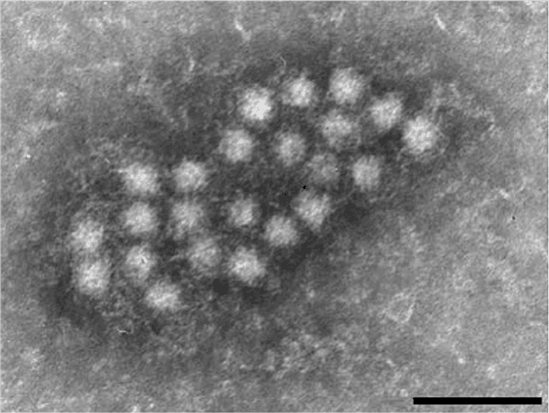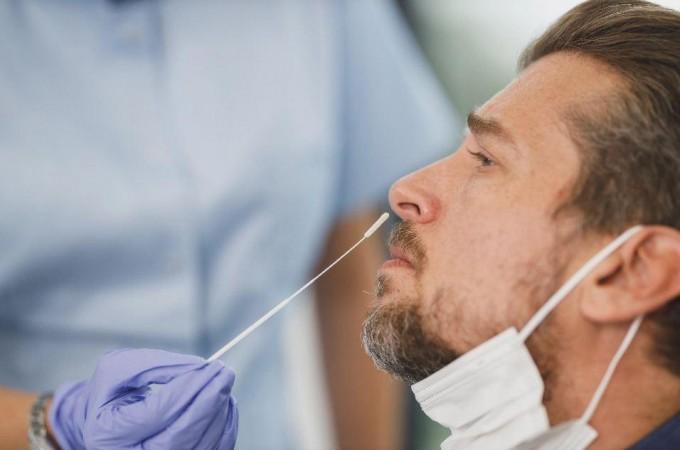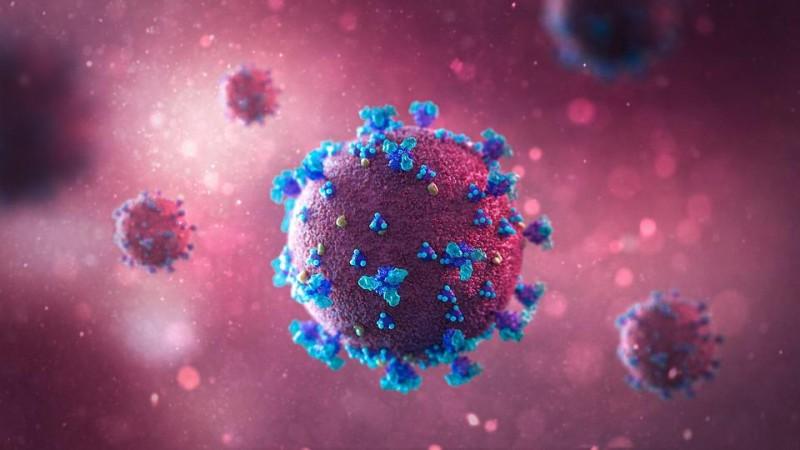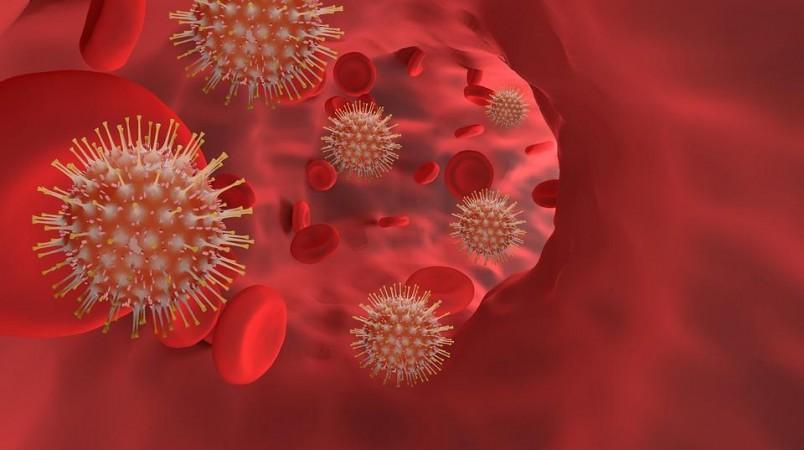A reliable technique to predict the prognosis of COVID-19 has evaded scientists and physicians throughout the course of the pandemic. While several methods are being worked on, a standardized one is yet to emerge. Now, scientists suggest that the presence of another virus in individuals infected with the SARS-CoV-2 virus can be utilized as a biomarker for assessing their infection's severity and recovery.
In a new multi-institutional study, researchers have found that the concentration of Torquetenovirus (TTV) in the saliva of individuals with COVID-19 was correlated to the duration and severity of their infection. The team learnt that the load of TTV was higher in people who were infected with COVID-19 and their symptoms lasted longer.
"We propose that sequential TTV measurement in saliva is potentially useful to assess the likelihood of symptom resolution in SARS-CoV-2-positive individuals and to predict prognosis," wrote the authors. The findings were published in the journal PLOS ONE.
Suggested Role in Diseases

Torquetenovirus (TTV) is a single-stranded, circular, and non-enveloped DNA virus. It belongs to a family of viruses known as Circoviridae. TTV is present in the biological fluids of healthy individuals. Having a few different strains, the virus is also found in wild animals such as apes, monkeys, and domesticated animals such as pigs and dogs.
It has been suggested that TTV plays a crucial role in several diseases such as AIDS, acute respiratory diseases, cancer, and liver diseases among others. These attributions, however, have been debated upon. Nevertheless, the excessive replication of the virus is considered an indication of abnormality of the immune system.
The correlation between high TTV load and immunosuppression has been utilized in several medicinal contexts. One such example is the monitoring of organ transplant patients who are administered immunosuppressive medication to prevent organ rejection.
Evaluating Concentration of TTV

For the study, the researchers collected saliva samples from two cohorts. The first group consisted of 91 individuals who tested positive for COVID-19, and the second comprised 126 individuals who had symptoms of flu but did not have the disease. RT-PCR was used to confirm the infection status of both groups.
Using gene amplification, the authors evaluated the titer of the SARS-CoV-2 virus and TTV. All the individuals included in the COVID-positive group had a mild or moderate case of the disease.
According to the responses to a questionnaire that all the participants were required to answer, none of them had diseases such as HIV/AIDS or cancer that are known to give rise to immunosuppression.
A Direct Correlation

It was found that TTV titer was higher in subjects who were infected with the novel coronavirus. The researchers also observed that the higher the titer was, the longer the sickness lasted. As the viral load decreased, the symptoms of COVID-19 gradually disappeared.
"The results showed that TTV can indeed serve as a marker of the progression and outcome of this disease. The more symptomatic the patient, the higher the TTV load in the sample," stated Dr. Maria Cássia Mendes-Correa, first author of the study, in a statement.
However, in the case of the flu group, the TTV titer continued to remain stable throughout the symptomatic duration. Fever and loss of smell were more common among those with COVID-19. Diarrhea, fatigue, and sore throat were more prevalent among individuals who had tested negative for the SAR-CoV-2 virus.

Talking about the probable reasons for the replication of TTV in individuals infected with the SARS-CoV-2 virus, Dr. Mendes-Correa averred, "COVID-19 appears to lead to a degree of immunodepression by causing an immune system imbalance, and this favors replication of TTV."
Possible Role as Biomarker
The findings of the study do not have direct clinical applications currently. However, they show potential to enable improved diagnosis and prognosis of COVID-19. Dr. Mendes-Correa stated that the team is investigating ways through which rapid and accurate diagnosis can be obtained.
"One of the possibilities is to develop a kit that doses several biomarkers of the disease at the same time and then assess the results with the aid of algorithms. Measuring TTV titer is one of several tests that could be included in these algorithms to support diagnosis. This is the direction medicine is going in," concluded Dr. Mendes-Correa.
















